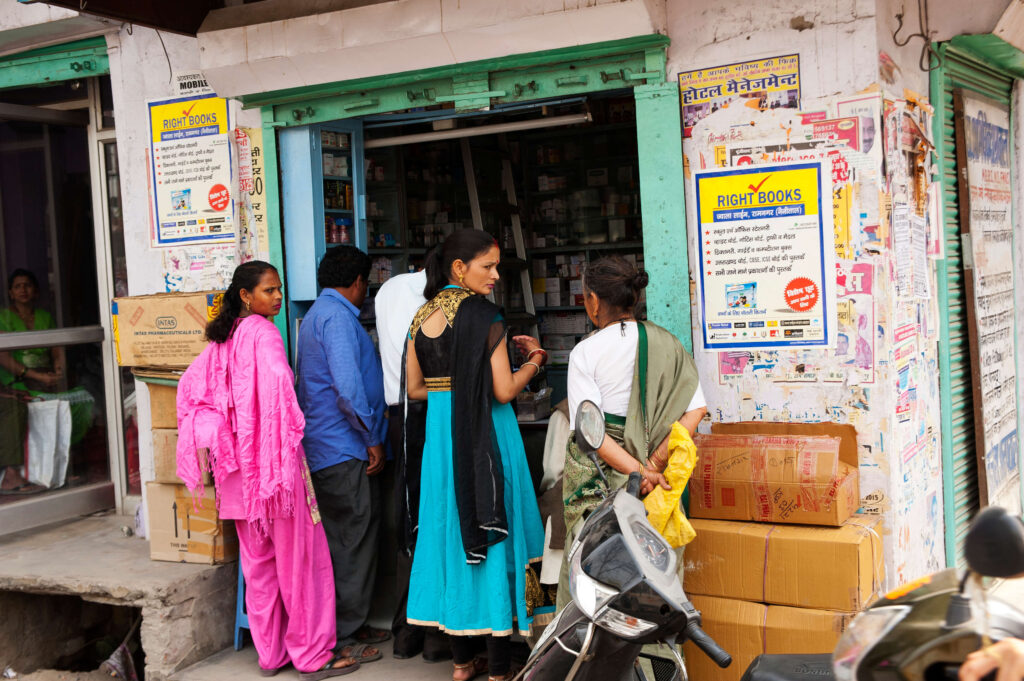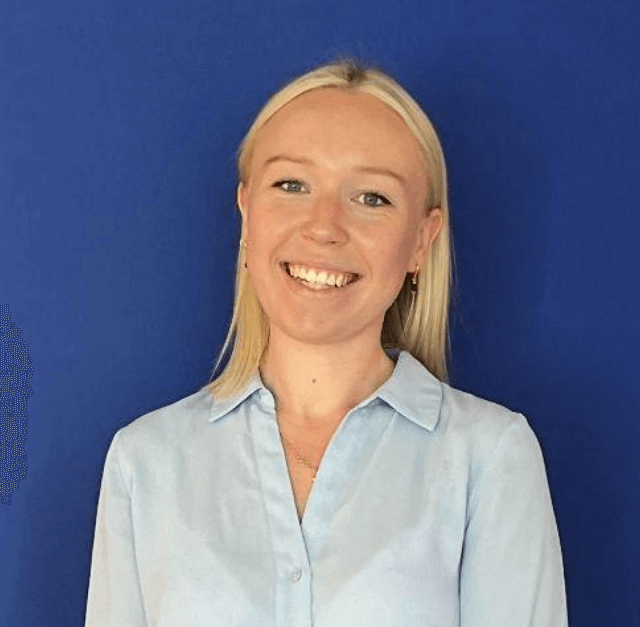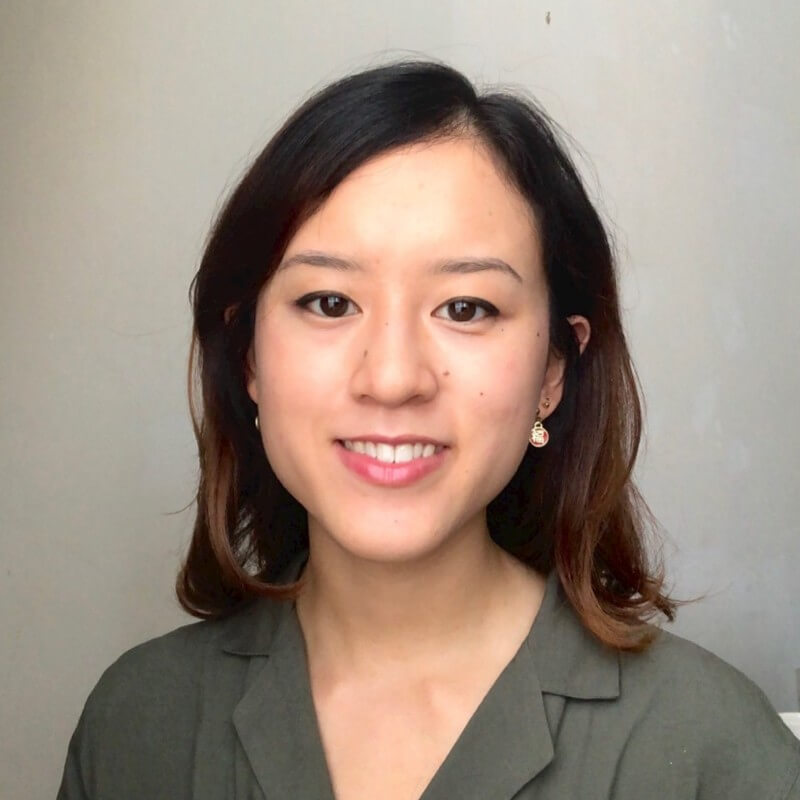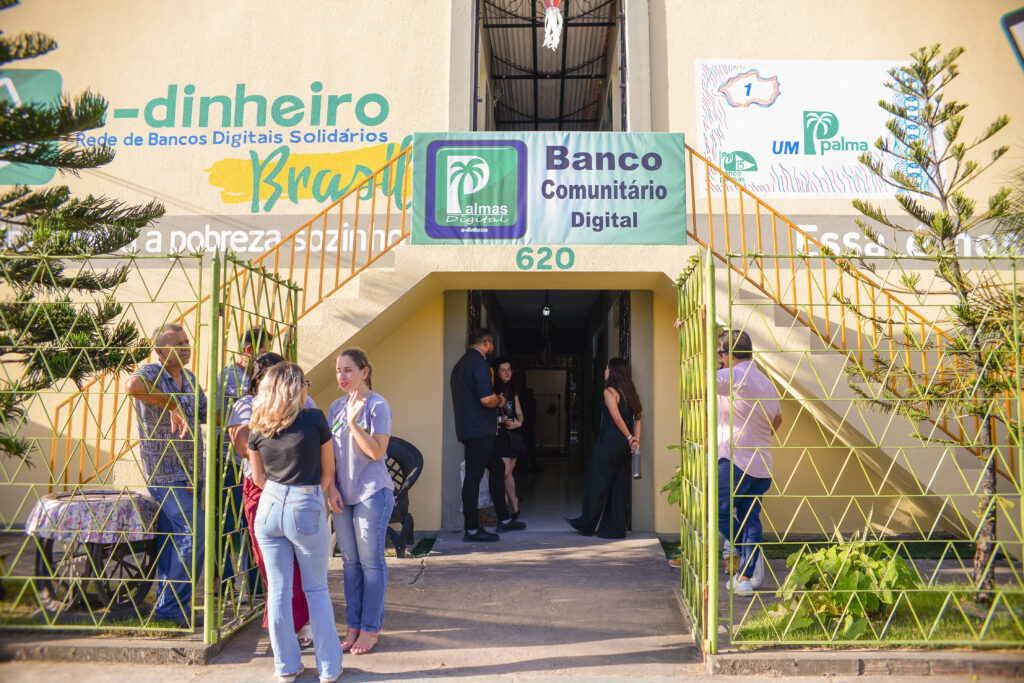
This blog post was generated from a research project conducted by a team of graduate students from Columbia University’s School of International and Public Affairs, in consultation with CFI and with support from LEAD at Krea University. The team focused on digital financial inclusion and consumer protection for women micro- and small-enterprise (MSE) owners in India and interviewed 38 women MSE owners, bank and fintech agents, and fintech executives in India in March 2023. Please note: Akanksha is a composite character based on interview anecdotes.
It is the middle of the day in Noida in Uttar Pradesh, and an angry customer storms into Akanksha’s small mobile phone and banking agent shop. The customer demands to know why his parents have not yet received the money he transferred to them at Akanksha’s shop yesterday. To calm him down, Akanksha explains that the bank app’s server experienced an electrical outage in the morning that stalled all transactions. However, the customer continues to demand an immediate fix.
As a woman, building trust with male customers has been particularly challenging, but she must do so since most customers are men.
In addition to running her shop, Akanksha is an agent for banks and fintechs, offering mobile money transfers and various utility services. In this scenario, she faces a tough decision. Akanksha must choose how to address the customer’s complaint – she can try to resolve the issue via the bank app, contact her area distributor — the middleman between banks or fintechs and the network of local agents serving customers, or close her shop and visit the bank. How she handles this complaint is critical, as she must maintain her customer base and the hard-earned trust of her customers. As a woman, building trust with male customers has been particularly challenging, but she must do so since most customers are men.
Akanksha, a woman in her mid-thirties with a bachelor’s degree, is not confident in filing a formal complaint using the app, which only has instructions in English. She also does not want to file a formal complaint out of fear that staff may escalate her issue to upper management, damaging her relationship with bank staff or her distributor. She attempts to contact her distributor on WhatsApp, but he does not answer. Because her husband is busy at work, Akanksha has no choice but to close her shop early and walk to the bank to talk to a staff member in person.
Minor Issues With Major Implications
While Akanksha’s story is fictional, it is not an uncommon situation for many women MSE owners in India. A team of graduate students from Columbia University interviewed 38 women in India who use digital financial services (DFS) to understand their user experiences with banking and fintech apps, especially concerning the complaints journey. The interviews revealed that a stalled transaction is just one of several common issues faced daily by women MSE owners and agents like Akanksha. Stalled transactions and outages are so common that one interviewee described this as “just a part of life.” Almost all interviewees (35 out of 38) experienced at least one minor issue like this when using banking or fintech apps. Because each instance takes valuable time to resolve and leads to lost revenue, the effects of “minor” issues can significantly impact MSE owners’ businesses. One interviewee reported closing her shop for 15-minute periods multiple times a day to walk to the bank and settle matters in person.
Akanksha’s experience highlights some of the barriers to complaints resolution and consumer protection for women MSE owners in India, driven by low confidence in DFS and a reliance on personal relationships with distributors and staff. In an interview with one fintech CEO – whose company was also among the Inclusive Fintech 50 winners – she said, “Women do not come screaming and shouting; this never happens. Local partners are more approachable. It is a business relationship; if you go to that level, it is also a social relationship.”
An example of this type of social relationship is how many women agents rely on and highly value their personal relationships with distributors who travel to different communities to collect and disburse cash to agents. One agent even described her distributor as her “mentor and guru.” However, this relationship can also be vulnerable; distributors can exploit agents who depend on them for operational needs and resolving issues. Furthermore, if complaints are made informally to the distributor, which is often true for women, distributors are not incentivized to formally record complaints. As a result, the absence of an official record limits management’s oversight of the challenges women agents face.
Finding Solutions That Better Serve Women
Existing literature points to factors such as literacy levels, a difficult interface, and a lack of trust that prevent the adoption and use of DFS. However, there remains a gap in understanding the challenges in post-adoption utilization of services, particularly in the face of weak consumer protection provisions by low-income women users. Therefore, in our study, we aimed to explore how consumer protection policies impacted the experiences of women MSEs in using DFS, particularly with complaint redressal.
We found that, generally, women were not comfortable with the process of submitting formal complaints. Despite fintechs and DFS providers having established complaints handling processes under their consumer protection policies, they are often inadequate in supporting their women users. This results in many women abandoning platforms altogether.
The interviews with women users in India showed that they highly value personal relationships and prefer in-person complaint resolution. However, women face higher challenges to complaint redressal because of their strong preference for resolving issues through social interactions and providers’ lack of gender-sensitive consumer protection policies. As such, to accommodate women’s user preferences, banks and fintechs need to adopt gender-intelligent strategies.
Through a gender-intelligent approach, banks and fintechs can better understand how women use complaint resolution processes and ultimately design offerings that address their specific needs. This approach can help change entrenched gender inequalities and benefit companies’ bottom lines. Therefore, solutions should focus on directly addressing women’s specific needs while considering the ability to achieve scale.
Based on the research interviews, we recommend that banks and fintechs consider the following:
1. Banks and fintechs should develop support features that strengthen women agents’ ability to use their apps confidently.
This approach could include robust in-person onboarding, training, and support in learning to use the app’s features. While this element is considered “high-touch,” the tech-touch balance is vital in providing inclusive financial services. Women users also reported that certain apps and resources were only available in English. Consequently, financial service products should be available in local languages and cater to varying literacy levels.
2. Banks and fintechs should formalize the full scope of the complaint process for their digital financial services.
Our research found that many women agents resolve complaints through informal mechanisms such as calling, texting (including WhatsApp), or meeting in person with distributors. Therefore, banks and fintechs should update processes and incentives to record distributor interactions and include them in formal complaint resolution processes and metrics.
3. Banks and fintechs should build user communities that enable high-touch and in-person support at scale.
Due to the travel-intensive and vulnerable cash collection nature of the role, most distributors are men. However, there is an opportunity to engage women as distributors to support women agents – one example is creating an “ambassador” program where established and high-performing women agents onboard and help new women agents. The incentive for becoming an ambassador is recognition as an expert and leader within the community. While many of our interviewees said they did not know other women agents, we saw that those who had learned from other women had higher competency levels in using the bank and fintech apps.
4. There should be more physical meeting spaces or local offices for women customers to meet staff and raise complaints.
For example, one gender-intelligent fintech established local meeting hubs to support women using fintech services. By providing a secure environment and personalized assistance, the space motivated women customers to raise issues and embrace a broader range of digital financial services, ultimately improving customer loyalty and lifetime value to fintechs.
These recommendations are merely the beginning of the transformative potential of digital financial services in advancing financial inclusion and consumer protection for women. By taking experiences like Akanksha’s into account during the product design and complaint resolution processes, banks and fintechs can forge a more inclusive complaints-handling strategy. Such an approach would enable women MSE owners and agents to thrive, expand their businesses, and achieve greater economic prosperity. When more women feel they can use DFS and fintech successfully, financial service providers can expand their business reach, demonstrating that gender-intelligent design is a win for all.

















